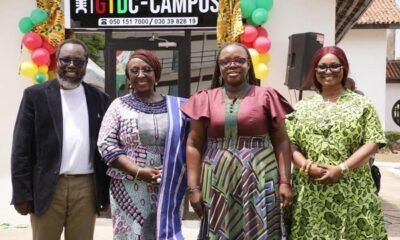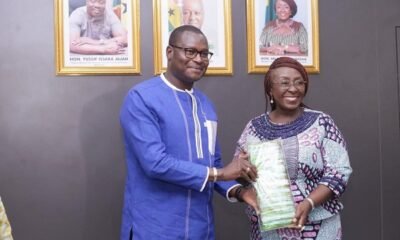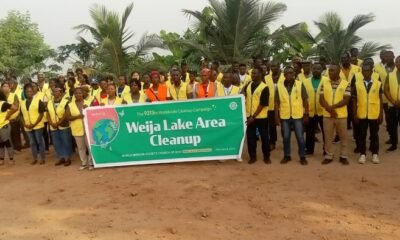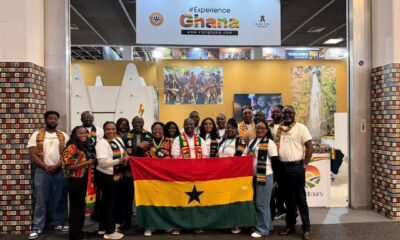News
Dr. Bawumia to engage the Media on August 25
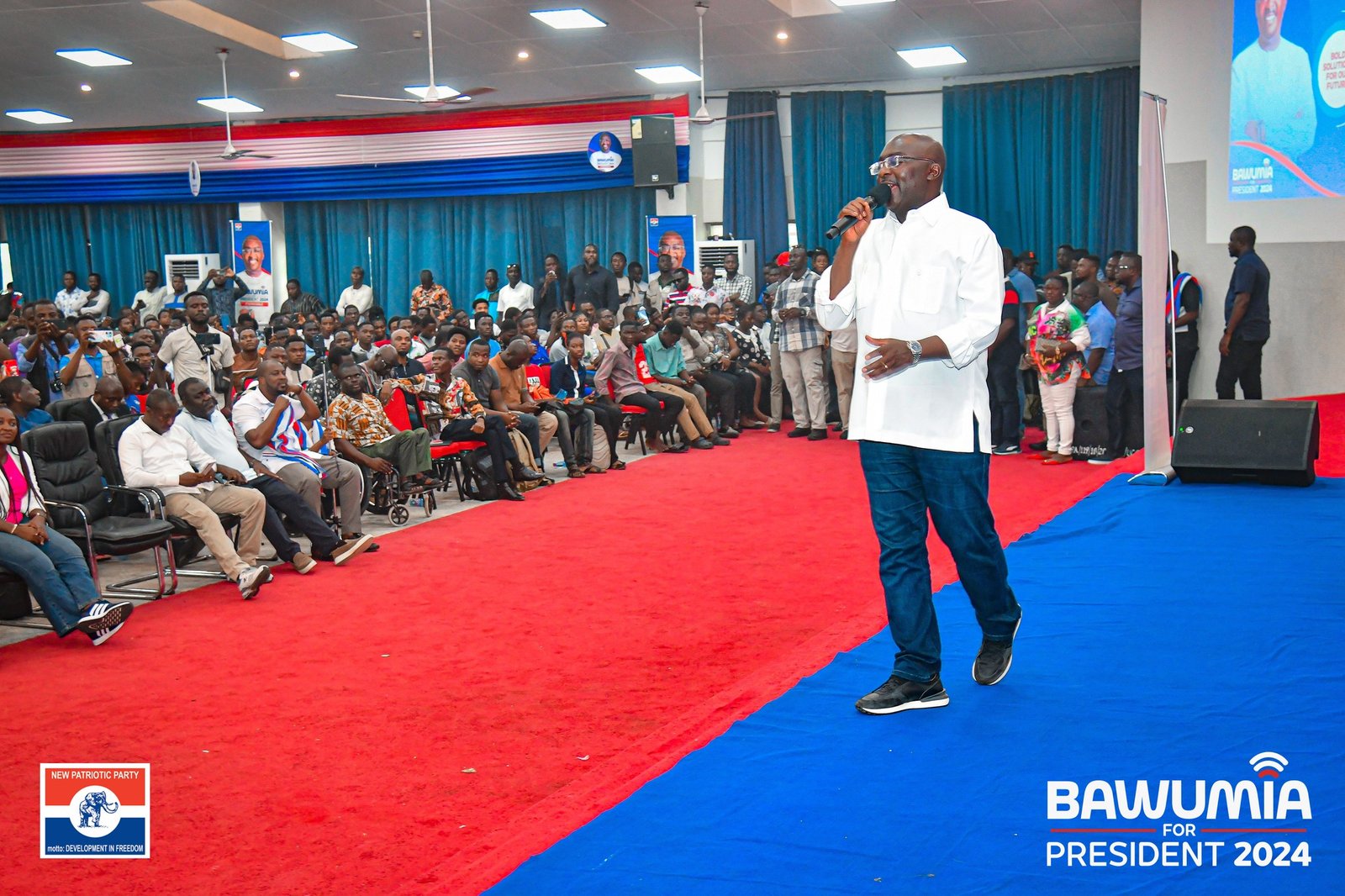
The media will finally have the chance to further probe policies by the New Patriotic Party (NPP), as its flagbearer, Dr. Mahamudu Bawumia hosts a Media Engagement on Sunday, August 25, 2024.
This Engagement follows the successful launch of the 2024 Manifesto of the New Patriotic Party.
A statement signed by the Director of Communications, Miracles Aboagye, noted that Dr. Bawumia is strongly convinced, that the Ghanaian people deserve to have a complete view and proper understanding of the vision of their leaders before the 2024 December polls, and the Manifesto properly sets the context for the conversation.
By Edem Mensah-Tsotorme
Read the full statement below
DR. BAWUMIA HOSTS THE MEDIA
The Flagbearer of the New Patriotic Party, Dr. Mahamudu Bawumia will host a Media engagement on Sunday, August 25, 2024.
This Engagement follows the successful launch of the 2024 Manifesto of the New Patriotic Party.
Dr. Bawumia is strongly convinced, that the Ghanaian people deserve to have a complete view and proper understanding of the vision of their leaders before the 2024 December polls, and the Manifesto properly sets the context for the conversation.
This very important media engagement is part of a series of activities lined up by Dr. Bawumia to deepen the dissemination of the 2024 Manifesto.
All media houses interested in sending representatives to this engagement, should kindly send an email to: itispossible@bawumia.com, latest by Close of Business Thursday 22nd August 2024.
TO LEAD IS TO SOLVE!
IT IS POSSIBLE!
SIGNED
DENNIS MIRACLES ABOAGYE
DIRECTOR OF COMMUNICATIONS
News
GTDC launches Campus Tourism Office at University of Ghana
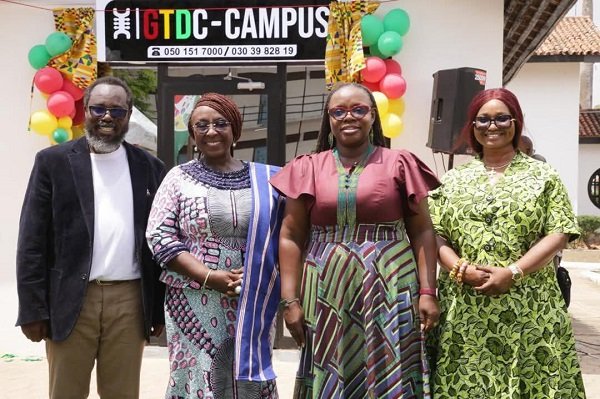
The Ghana Tourism Development Company, GTDC, under the leadership of Prof.Kobby Mensah has launched GTDC Campus Tourism Office at the University of Ghana.
The initiative aims to promote educational and domestic tourism by providing structured campus tour experiences showcasing key heritage sites, including the Archaeology Museum and the School of Performing Arts.
It will also offer students their first travel experience across the continent and inculcate in them love to visit Ghana’s heritage sites.
Addressing the gathering at the launch yesterday, the Minister of Tourism, Culture and Creative Arts, Abla Dzifa Gomashie, described tourism as a vehicle for education and heritage preservation, stressing that the sector must inspire citizens to value and protect national culture for future generations.
The minister highlighted tourism’s connection to disciplines such as history, the arts, economics and environmental science.
The minister further noted that the private sector is the engine of tourism economy, adding that the engines require fuel, which is talents.” by investing in these young people today, you are securing the quality, the innovation and competitiveness of our own industry for tomorrow.
She added that the establishment of the office represents a deliberate investment in the intellectual capital of the country.
The GTDC boss, Prof.Kobby Mensah, said,”at GTDC, we believe that if our tourism has to be sustainable, we have to promote domestic tourism and a very big part of it is getting students to appreciate tourism and helping them to organise tours.”
He added that the University of Ghana itself is a huge heritage site which must be explored.
Prof.Kobby Mensah noted that the initiative, which is one of many to be established across the country, is a joint partnership between GTDC and University of Ghana.
The Vice Chancellor of the University, Prof.Nana Aba Appiah Amfo, said the University is a custodian of heritage which goes beyond the structures and welcomed the establishment of the first Campus Tourism Office.
She was optimistic that the office would be put to good use to achieve the intended purpose.
The launch brought together Stakeholders reaffirming their commitment to nurturing future tourism and hospitality professionals.
By Edem Mensah-Tsotorme
News
Ghana to feature as Guest Country at Burkina Faso’s 22nd National Culture Week
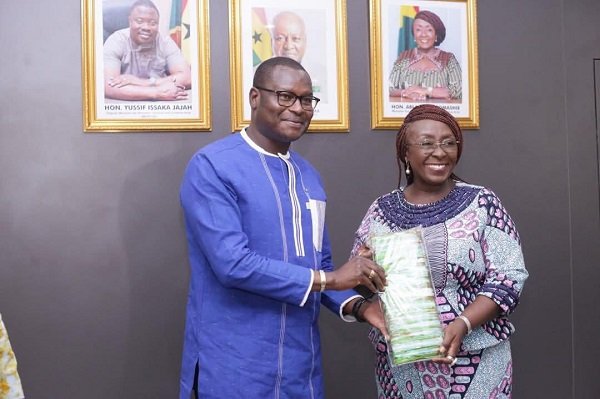
Ghana has officially accepted an invitation to serve as Guest Country at Burkina Faso’s 22nd National Culture Week in Bobo-Dioulasso from April 22 to May 2, 2026.
The invitation was extended by Burkina Faso’s Minister of Communication, Culture, Arts and Tourism, Gilbert Noël Ouédraogo, accompanied by the Ambassador of Burkina Faso to Ghana, H.E. David Kabré.
Receiving the delegation, Abla Dzifa Gomashie reaffirmed Ghana’s commitment to deepening cultural diplomacy and strengthening historic ties between the two nations.
She noted that the festival will create opportunities for young creatives, expand exhibition platforms and promote commercial exchange within the creative sector.
The event will feature cultural performances, a community village and gastronomy fair, an arts market, literary engagements, and a craft and trade fair.
Ghana’s participation is expected to further strengthen bilateral relations between John Dramani Mahama and Ibrahim Traoré, while fostering collaboration within the creative ecosystems of both countries.

